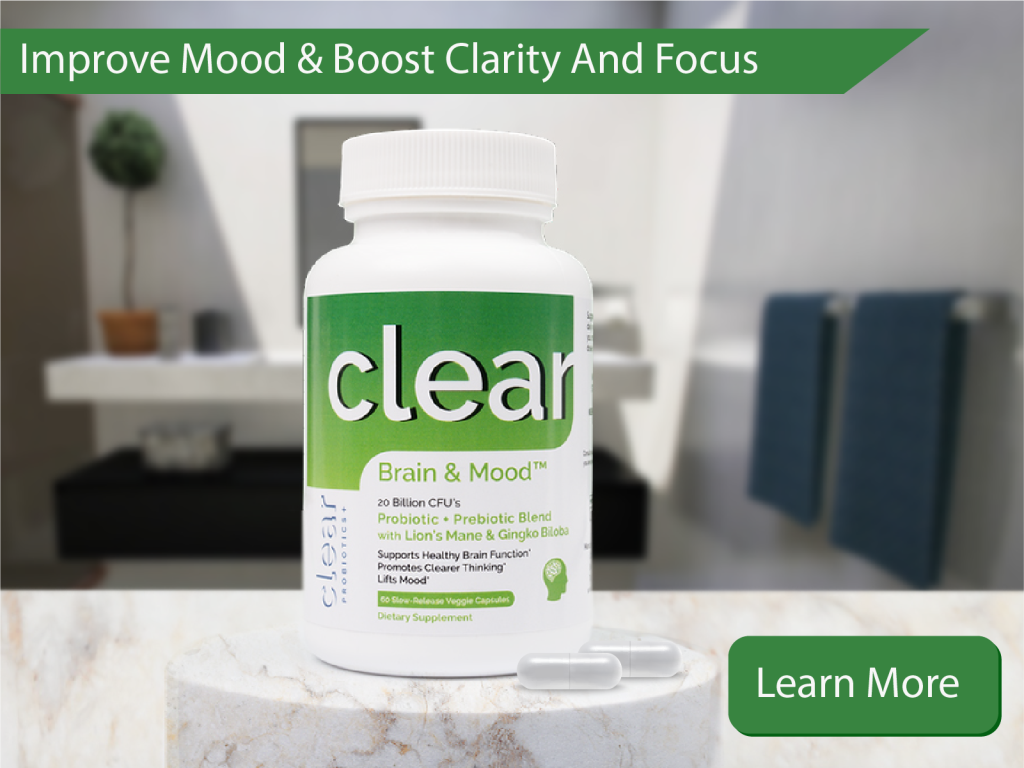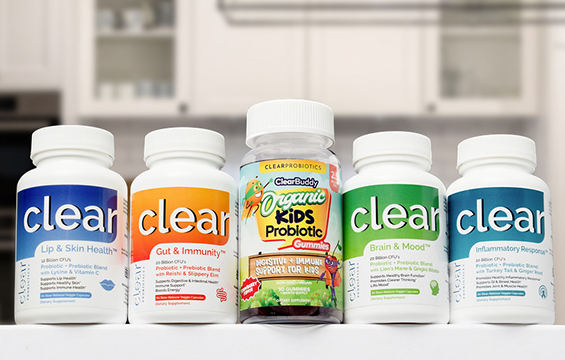Table of Contents
ToggleProbiotics are live microorganisms that can help restore the balance of good and bad bacteria in the body.
As long as the package directions are followed, probiotics are generally considered safe to take during pregnancy.
While there is limited data on the safety of probiotics during pregnancy, studies suggest that they do not increase the risk of preterm birth or other adverse outcomes.
Key Takeaways:
- Probiotics can help restore the balance of good and bad bacteria in the body.
- Studies suggest that probiotics do not increase the risk of preterm birth or other adverse outcomes during pregnancy.
- Probiotics are commonly used to maintain vaginal flora and prevent infections in pregnant women.
- Not all probiotics are regulated by the FDA, so it’s important to choose reputable brands.
- Pregnant women should consult with their healthcare provider before taking any medication or supplement, including probiotics.
The Benefits of Probiotics for Pregnant Women
Probiotics offer numerous benefits for pregnant women, promoting optimal maternal health and providing essential support for prenatal care.
These live microorganisms can help restore the balance of good and bad bacteria in the body.
One of the key advantages of probiotics for pregnant women is their ability to maintain vaginal flora and prevent infections.
During pregnancy, hormonal changes can alter the pH balance in the vagina, increasing the risk of conditions such as bacterial vaginosis and yeast infections.
Probiotics help regulate the vaginal microbiome, reducing the likelihood of these infections and promoting overall vaginal health.
They have been shown to support the immune system and reduce inflammation, which can be particularly beneficial during pregnancy.
A healthy immune system can protect expectant mothers from infections and promote the healthy development of the fetus.
By modulating the immune response, probiotics may also have a positive impact on conditions such as gestational diabetes and preeclampsia.
| Key Benefits of Probiotics for Pregnant Women: |
|---|
| 1. Maintenance of vaginal flora and prevention of infections |
| 2. Support for the immune system and reduced inflammation |
| 3. Potential positive impact on gestational diabetes and preeclampsia |
It’s important to note that not all probiotics are regulated by the FDA. To ensure safety and efficacy, pregnant women should choose reputable brands and consult with their healthcare provider before starting any new medication or supplement routine.
By working with a healthcare professional, expectant moms can receive individualized advice and guidance to make informed decisions regarding probiotic use during pregnancy.
Understanding the Safety Concerns
While probiotics can be beneficial during pregnancy, it is crucial to understand and address the safety concerns associated with their use.
Limited data suggests that probiotics do not increase the risk of preterm birth or other adverse outcomes.
One of the primary safety concerns is the quality and efficacy of probiotic supplements.
As pregnant women must be cautious of what they consume, it is recommended to consult with a healthcare provider before taking any medication or supplement, including probiotics.
Individualized advice and guidance from a medical professional can help ensure the safety and effectiveness of probiotic use during pregnancy.
When choosing probiotics, it is essential to consider the specific needs of expectant moms.
Not all probiotic strains are suitable for pregnant women, as different strains may have varying effects on maternal and fetal health.
| Risks of Probiotics during Pregnancy | Safe Probiotic Supplements for Expectant Moms | Choosing Probiotics for Pregnancy |
|---|---|---|
| Consult with a healthcare provider before taking any medication or supplement | Consider the specific needs of expectant moms | Consider specific needs of expectant moms |
| Not all probiotics are regulated by the FDA | Individualized advice and guidance from a medical professional | Determine which probiotic supplements are safe and appropriate |
| Effects of probiotic strains on maternal and fetal health | Safe and reputable brands |

Latest Research on Probiotics and Fetal Health
Exciting research suggests that probiotics may have a positive impact on fetal health during gestation.
Probiotics are live microorganisms that can help restore the balance of good and bad bacteria in the body.
Limited data on the safety of probiotics during pregnancy indicates that they do not increase the risk of preterm birth or other adverse outcomes.
During pregnancy, maintaining vaginal flora and preventing infections are important considerations. Probiotics have been commonly used by pregnant women for these purposes.
It’s crucial to choose reputable brands, as not all probiotics are regulated by the FDA. Consulting with a healthcare provider is essential before taking any medication or supplement, including probiotics, to ensure individualized advice and guidance.
Ingesting probiotics during pregnancy, when following the package directions, is generally considered safe.
The latest research on probiotics and fetal health offers promising insights, but further investigation is required to comprehend their full impact.
| Key Points: |
|---|
| Probiotics may have a positive impact on fetal health during gestation. |
| More studies are needed to fully understand the effects of probiotics during pregnancy. |
| Probiotics are commonly used to maintain vaginal flora and prevent infections. |
| Consultation with a healthcare provider is crucial before taking any medication or supplement. |
| Choosing reputable probiotic brands is important, as not all products are regulated by the FDA. |
| The latest research highlights the need for further investigation in this area. |
The Importance of Consultation with Healthcare Providers
Before incorporating probiotics or any other medication or supplement into their routine, expectant moms should consult with their healthcare provider to ensure optimal prenatal care.
Pregnancy is a sensitive period, and it’s crucial to make informed decisions about what is safe and beneficial for both the mother and the baby.
Every pregnancy is unique, and what works for one woman may not be suitable for another.
During a consultation, healthcare providers can assess a woman’s individual circumstances, including any existing health conditions or concerns.
They can provide personalized advice on whether probiotics are appropriate and recommend specific brands or strains that are safe for use during pregnancy.
This ensures that expectant moms are receiving accurate information based on the latest research and medical guidelines.
Healthcare providers can monitor the expectant mom’s progress throughout pregnancy and make any necessary adjustments to the treatment plan.
They can address any potential risks or side effects and offer guidance on the appropriate dosage and duration of probiotic use.
Regular check-ups with healthcare providers ensure that any changes in health or pregnancy status are properly managed.
| Benefits of Consultation with Healthcare Providers | Risks of Not Consulting |
|---|---|
|
|
Consulting with a healthcare provider is essential to ensure expectant moms are making the best decisions for their health and the health of their babies. Probiotics can be beneficial during pregnancy, but it’s important to have expert guidance to navigate the wide range of available options and select the most appropriate ones.
A Word From HealthyVibe
Research tells us that probiotics do not increase the risk of preterm birth or other adverse outcomes. Consulting with a healthcare provider before taking any medication or supplement is essential, including probiotics.
They can provide individualized advice and guidance based on your specific needs and medical history.
It is important to note that individual responses may vary, and what works for one person may not work for another.
Therefore, expectant moms should approach the use of probiotics during pregnancy with caution and make informed decisions based on reliable information and medical advice.
FAQ
What are probiotics?
Probiotics are live microorganisms that can help restore the balance of good and bad bacteria in the body.
Are probiotics safe to take during pregnancy?
While there is limited data on the safety of probiotics during pregnancy, studies suggest that they do not increase the risk of preterm birth or other adverse outcomes. As long as the package directions are followed, probiotics are generally considered safe to take during pregnancy.
Can probiotics help maintain vaginal flora during pregnancy?
Yes, probiotics are commonly used during pregnancy to maintain vaginal flora and prevent infections.
Should I choose a reputable brand of probiotics for pregnancy?
Yes, it is important to choose reputable brands of probiotics for pregnancy. Not all probiotics are regulated by the FDA, so it’s important to ensure you are using a trusted and reliable product.
Do I need to consult with my healthcare provider before taking probiotics during pregnancy?
Yes, it is always recommended to consult with your healthcare provider before taking any medication or supplement during pregnancy, including probiotics. They can provide individualized advice and guidance based on your specific needs.
Are there any risks associated with taking probiotics during pregnancy?
While probiotics are generally considered safe, it’s important to be aware of potential risks. Choosing a safe and regulated probiotic supplement is crucial to minimize any potential risks.
What does the latest research say about probiotics and fetal health?
The latest research suggests that probiotics may have positive effects on fetal health and development during gestation. However, further investigation is needed to fully understand their impact.
What is the key takeaway for expectant moms regarding probiotics?
Expectant moms should weigh the risks and benefits of using probiotics during pregnancy. It is important to seek reliable information and consult with healthcare providers to make informed decisions.












